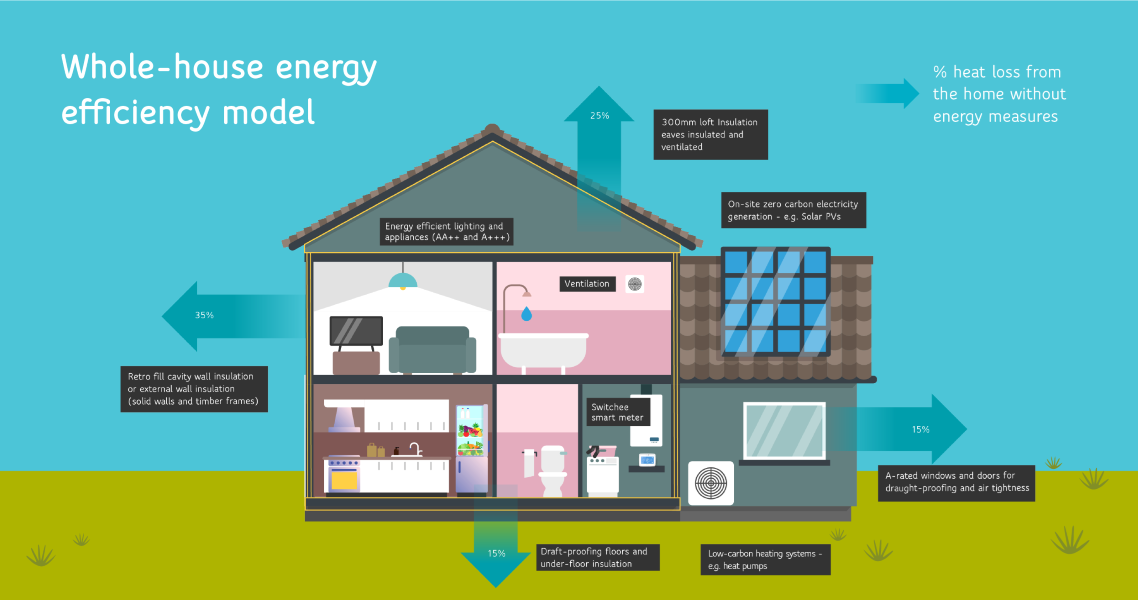Insightful Perspectives
Explore a world of engaging news and informative articles.
Why Your Home Should Start Taking Energy Efficiency Tips from the Sun
Unleash the power of the sun! Discover energy efficiency tips that can transform your home and save you money while saving the planet.
Harnessing Solar Power: Essential Energy Efficiency Tips for Your Home
Harnessing solar power is not only a sustainable choice for the environment but also a smart financial decision for homeowners. To maximize the benefits of solar energy, it's essential to enhance your home's energy efficiency. Start by conducting an energy audit to identify areas where you can reduce consumption. Simple adjustments like sealing drafts, upgrading insulation, and replacing outdated appliances can significantly lower your energy usage. Implementing these changes allows you to fully utilize the energy produced by your solar panels, ensuring that more of it translates into savings on your utility bills.
In addition to energy audits, consider investing in smart home technology that can further optimize your energy consumption. Devices like programmable thermostats and smart lighting systems enable you to control energy use based on your schedule. For instance, a programmable thermostat can automatically adjust heating and cooling when you're away, preventing unnecessary energy wastage. Moreover, utilizing energy-efficient appliances and LED lighting can drastically cut down your energy needs, allowing your solar system to work even more effectively. By adopting these essential tips, you can create a more energy-efficient home while maximizing the return on your solar investment.

5 Ways to Make Your Home More Energy Efficient Using the Sun's Resources
Making your home more energy efficient can significantly reduce your electricity bills and lower your carbon footprint. One of the best ways to harness renewable energy is by utilizing the sun's resources. Here are five effective strategies to get started:
- Solar Panels: Installing solar panels on your roof can convert sunlight into electricity, powering your home while decreasing your reliance on fossil fuels.
- Passive Solar Design: Design your home to take advantage of natural sunlight. Use large windows and thermal mass materials to absorb and retain heat during the day.
In addition to installation and design, consider these further methods:
- Solar Water Heating: Invest in solar water heating systems that use the sun to heat your water supply, reducing the energy needed for heating.
- Daylighting: Maximize natural light indoors by utilizing skylights or light tubes, minimizing the need for artificial lighting during the day.
- Shade and Landscaping: Plant trees or install awnings to block excess sunlight during the summer, keeping your home cooler and reducing air conditioning costs.
Is Your Home Ready for Solar Energy? Explore These Efficiency Tips
Making the transition to solar energy requires careful consideration of your home's current efficiency and energy consumption. Begin by conducting an energy audit to identify areas where you can improve efficiency. Look into upgrading insulation, sealing any drafts, and replacing old windows, as these steps can significantly reduce your energy consumption. Once you've optimized your home, you can better assess the size and type of solar panel system that will meet your needs.
Another important aspect to consider is the orientation and shading of your roof. Solar panels perform best when they receive direct sunlight for the majority of the day. If your roof is shaded by trees or nearby structures, you might want to consider trimming these trees or even relocating panels to a sunnier spot. Additionally, consulting with a professional installer can help you determine the best placement for maximum energy capture, ensuring that your transition to solar energy is both efficient and effective.